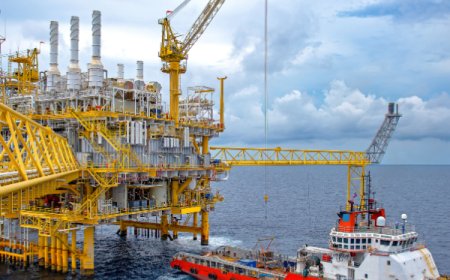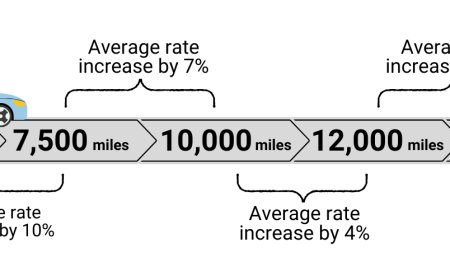Types of Washers and How They Are Beneficial
Washers are small yet essential components used with fasteners to distribute load, prevent damage, and secure connections. This guide covers the main types of washers—flat, spring, lock, and specialty washers—and explains how each type functions and contributes to mechanical stability. Whether in construction, automotive, or household projects, understanding washer types helps ensure safer and more efficient assemblies.

In mechanical systems, the smallest pieces frequently perform the most vital roles—washers are excellent illustrations of this notion. Washers ensure that fasteners function correctly and safely, whether by distributing load, preventing stretching, or sealing joints.
Washers have become vital components in various industries, including automotive, construction, electrical, and aerospace. With variations such as flat washers, spring washers, sealing washers, and specialty types, the application range is broad.
Fastener manufacturers in India recognise the importance of high-performance washers and incorporate them into nearly every bolt, nut, or screw assembly.
This article explores the six primary varieties of washers available at Fastener World India, examining their construction, unique benefits, and applications.
Whether you are a design engineer or a sourcing specialist, this guide will help you make informed judgments when selecting washers from India's finest fastener suppliers.
What are washers? Why Are They Used in Fastening Systems?
Washers are thin, disk-shaped plates with holes in the center that distribute the strain of threaded fasteners, such as bolts or screws. While their appearance may appear simple, their function is critical to guaranteeing joint dependability, equipment longevity, and structural safety.
Key Reasons why Washers are used:
-
Load Distribution: Prevents surface damage when fastening.
-
Vibration Resistance: Certain varieties, such as spring or tooth washers, resist loosening over time.
-
Sealing: Some washers include a seal to prevent water, dust, or air leaks.
-
Distance or pre-load management: Maintain tension or use as a spacer in a tight assembly.
Types of Washers Offered by Fastener World India
Below, six washers listed in Fastener World India provide a detailed analysis of the structure and benefits.
1. Flat Washers
Product: Stainless Steel Flat Wash
Flat Washing Machines are discussed as the central hole, screw, screw, or components that distribute luggage evenly under the screw head. Prevent surface deformation and increase storage area, especially for softer materials such as wood and aluminium.
Flat washing machines also help minimise friction between the fixation elements and the material, thereby improving joint integrity. Your simple design and broad compatibility make it the type of washing machine most frequently used in various applications, including machinery, construction, and general purposes.
Benefits:
-
Streaming load through a larger interface
-
Prevents material agitation or damage
-
Minimises friction between fixing elements and the surface
Applications:
-
Construction
-
Furniture assembly
-
Automotive systems
-
E-panels
2. Spring Washer
Product: Spring washers–MS
The spring washer is developed with a shared or bent profile that allows for elasticity. Spring-like effects include the voltage of the screwed connection, supplementing vibration, thermal expansion and material completion.
This prevents unintentional loosening in dynamic systems. Spring slices made of soft steel or stainless steel are often used when mechanical loads vary, and joint security is essential. The self-locking property makes it ideal for applications exposed to constant vibration or rotary movement.
Benefits:
-
Maintaining voltage under dynamic loads
-
prevents vibration slack
-
Thermal or load variations
Applications
-
Automotive Motor
-
Railway Module
-
Heavy Machine
-
Electric Motor
3. Sealing Washers
Product: Metal Bonded Neoprene Sealing Washers
Sealing washers are characterised by an aggregate of a steel ring and an elastomeric material, such as neoprene. This bonded shape gives each mechanical assist a dependable sealing effect.
When compressed, the rubber creates a sound barrier against the ingress of air, water, dust, and oil. These washers are essential in structures that require watertight or hermetic joints, particularly in exposed environments.
Their dual-cloth layout makes them resistant to weathering, vibration, and temperature fluctuations, thereby extending the lifespan of mounted components.
Benefits:
-
Prevents fluid or air leaks
-
Provides weatherproof sealing
-
Absorbs vibration and mechanical surprise
Applications:
-
Roofing fasteners
-
HVAC installations
-
Marine and plumbing structures
-
Outdoor enclosures
4. Square Plate Washers
Product: Square Plate Washing Machine Penetration
The Quadriter Plate Washing Machine has a square profile with a central hole and is designed for use in high-load applications. Their wider surfaces provide a more even load distribution and prevent them from being pulled out, especially on softer substrates such as wood and concrete. The square shape opposes rotation under high voltages.
Zinc-plated square slices provide corrosion resistance, making them suitable for both indoor and external applications. They are usually paired with the anchor screws in the structural assembly for additional durability and safety.
Benefits:
-
Distributor Load
-
Resist rotation under voltage
-
Provides firm support for wood and concrete
Applications:
-
Steel structure
-
Wooden frame
-
Civil Engineering Infrastructure
-
Establishment System
5. Wave Washers
Products: Stainless Steel - Wave Springs - Waschen
Also known as Wave Washer, Wave Spring has a corrugated sheet profile that can be generated by compressing the spring force. Their wavy shapes ensure continuous pressure between connected components.
Perfect for pre-load applications or areas with limited space. Wave cleaners maintain assembly tension with thermal expansion or vibration. The stainless steel construction ensures corrosion resistance, making it suitable for high-precision systems that require consistent axial stress over time.
Benefits
-
Maintains pre-load in tight assemblies
-
Compensates for growth and contraction
-
Offers spring motion without huge area necessities
Applications:
-
Bearing pre-loading
-
Aerospace additives
-
Electronics and instrumentation
-
Small mechanical gadgets
Key Manufacturing Considerations and Material Choice
Washer performance is heavily dependent on the composition of the material and the accuracy of manufacturing. Let's take a look at how fastener manufacturers in Delhi and other cities take care of their washing machines:
Materials used
-
Stainless steel (304, 316): High corrosion resistance
-
Mild Steel (MS): Affordable, General Use Washing Machine
-
Nylon: Electric Insulation and Lightweight
-
Rubber/Neoprene: Sealing Use
-
Brass or Copper: Used for conductivity and decorative finishing processes.
Process Involved
-
Stamp or Laser Cutting
-
Heat treatment
-
Plating and Coating (Zinc, Nickel, Galvanized)
-
Dimensional Testing and Load Verification
Why Washers Are Critical in Industrial Applications?
Let's discover how extraordinary industries take advantage of the proper washing machine types:
1. Construction & Infrastructure
Washers used: Flat, rectangular plate, spring
They offer steady anchoring, structural stability, and decreased fatigue screw-ups in metal and urban frameworks.
2. Automotive Industry
Washers used: Spring, sealing, wave
Ensures vibration resistance, tight fluid systems, and consistent overall performance, even under extreme RPM and heat conditions.
3. Electrical & Electronics
Washers used: Nylon, outside teeth
Offer insulation, conductivity, and steady PCB mountings with anti-loosening properties.
4. Oil & Gas Industry
Washers used: Sealing washers
Prevents unsafe leaks and ensures the integrity of excessive-stress seals in pipelines and valves.
5. Aerospace & Defense
Washers used: Wave, flat
Maintain essential preload in areas and weight constraints that call for compact, resilient solutions.
How to Choose the Right Washer Manufacturer?
When sourcing washers in India, mainly from pinnacle fasteners providers in India, bear in mind the following:
1. Certifications and Compliance
Look for ISO, ASTM, or DIN compliance for consistency in dimensions and overall performance.
2. Material Traceability
Good producers offer to review certificates (MTCs) and the traceability of raw materials.
3. Customisation Capabilities
Ensure the producer can manage custom washing machine designs or dimensions if required.
4. Quality Control Systems
In-residence checking for torque, corrosion resistance, and dimensional tests is vital.
5. Timely Logistics & Support
Fastener providers in India must ensure proper warehousing, timely dispatch, and responsive customer service to meet the needs of their customers.
Conclusion
In high-performance mechanical assemblies, washers offer more than just spacing—they provide unquestionable integrity, durability, and protection. Whether it's a flat washing machine preventing floor harm or a sealing washing machine shielding against fluid leaks, every kind performs a mission-critical function in business applications.
By understanding the benefits of every washing machine type offered through systems like Fastener World India, engineers and sourcing professionals can select precisely what their packages require. From production to aerospace, choosing the right washing machine ensures system protection and efficiency.
With the proper fastener producer in Delhi or other major business hubs, you gain access to dependable washer machine solutions engineered to international standards. As the enterprise advances, so does the significance of using certified, high-quality washers from reputable sources.



































